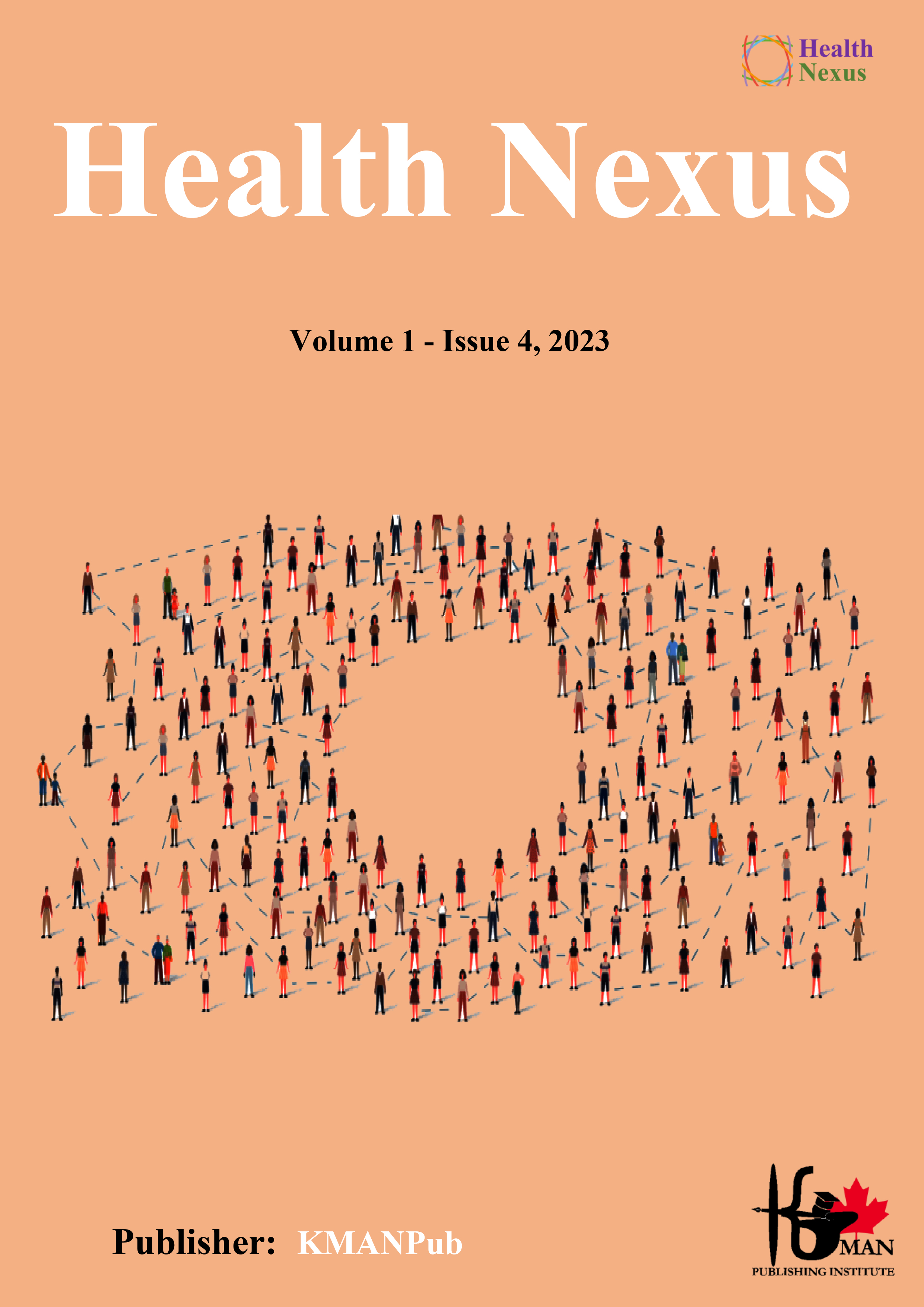Complication Severity and Its Association with the Treatment Management of COVID-19 Patients in Bangladesh: A Cross-Sectional Study
Keywords:
COVID-19, Treatment, Management, COVID-19 Patients, BangladeshAbstract
In an unprecedented way, COVID-19 patients in Bangladesh have suffered greatly due to the severity of the complications. Additionally, treatment management was also a grave concerning issue. This study explored the extent of COVID-19 complications associated with the pattern of COVID-19 Prevention and Treatment Management in the context of Bangladesh. This cross-sectional study included 659 COVID-19-positive patients aged 18 and up who were treated at home or in hospitals and lived in Dhaka city From April to September 2021. The results showed that 20.5% had a mild COVID-19 infection. Family income, the number of co-morbidities, and the location of therapy were found to have a substantial impact on recovery time. In addition, there were high correlations between age, the number of co-morbidities, level of education, and the place of treatment with the severity of Covid-19 infection. The government should place a greater emphasis on training and resources to ensure efficient hospital management and widespread public knowledge as a precaution for further phenomena like COVID-19.
Downloads
References
1. World Health Organization W. Coronavirus disease 2019 (COVID-19): situation report, 73. 2020.
2. Zaki N, Mohamed EA. The Estimations of the COVID-19 Incubation Period: A Scoping Reviews of the Literature. medRxiv. 2020:2020.05.20.20108340. [DOI]
3. World Health Organization W. Mental health and psychosocial considerations during the COVID-19 outbreak, 18 March 2020. World Health Organization; 2020.
4. Zhou F, Yu T, Du R, Fan G, Liu Y, Liu Z, et al. Clinical course and risk factors for mortality of adult inpatients with COVID-19 in Wuhan, China: a retrospective cohort study. The Lancet. 2020;395(10229):1054-62. [PMID: 32171076] [DOI]
5. Lin L, Lu L, Cao W, Li T. Hypothesis for potential pathogenesis of SARS-CoV-2 infection–a review of immune changes in patients with viral pneumonia. Emerging Microbes & Infections. 2020;9(1):727-32. [PMID: 32196410] [PMCID: PMC7170333] [DOI]
6. Nicola M, O'Neill N, Sohrabi C, Khan M, Agha M, Agha R. Evidence based management guideline for the COVID-19 pandemic - Review article. International Journal of Surgery. 2020;77:206-16. [PMID: 32289472] [PMCID: PMC7151371] [DOI]
7. Zhang T, Wu Q, Zhang Z. Probable Pangolin Origin of SARS-CoV-2 Associated with the COVID-19 Outbreak. Current Biology. 2020;30(7):1346-51.e2. [PMID: 32197085] [PMCID: PMC7156161] [DOI]
8. Güner HR, Hasanoğlu İ, Aktaş F. COVID-19: Prevention and control measures in community. Turkish Journal of medical sciences. 2020;50(9):571-7. [PMID: 32293835] [PMCID: PMC7195988] [DOI]
9. European Centers for Disease Control E. Using face masks in the community reducing COVID-19 transmission from potentially asymptomatic or presymptomatic people through the use of face masks ECDC Technical Report 2020 [Available from: https://www.ecdc.europa.eu/en/publications-data/using-face-masks-communityreducing-COVID-19-transmission.
10. Wilder-Smith A, Freedman DO. Isolation, quarantine, social distancing and community containment: pivotal role for old-style public health measures in the novel coronavirus (2019-nCoV) outbreak. Journal of Travel Medicine. 2020;27(2). [PMID: 32052841] [PMCID: PMC7107565] [DOI]
11. Fong MW, Gao H, Wong JY, Xiao J, Shiu EYC, Ryu S, Cowling BJ. Nonpharmaceutical Measures for Pandemic Influenza in Nonhealthcare Settings-Social Distancing Measures. Emerg Infect Dis. 2020;26(5):976-84. [PMID: 32027585] [PMCID: PMC7181908] [DOI]
12. Fang L, Karakiulakis G, Roth M. Are patients with hypertension and diabetes mellitus at increased risk for COVID-19 infection? The Lancet Respiratory Medicine. 2020;8(4):e21. [PMID: 32171062] [DOI]
13. World Health Organization W. The effects of virus variants on COVID-19 vaccines. World Health Organization https://wwwwhoint/news-room/feature-stories/detail/the-effects-of-virus-variants-on-covid-19-vaccines. 2021.
14. Guan W-j, Ni Z-y, Hu Y, Liang W-h, Ou C-q, He J-x, et al. Clinical Characteristics of Coronavirus Disease 2019 in China. New England Journal of Medicine. 2020;382(18):1708-20. [PMID: 32109013] [PMCID: PMC7092819] [DOI]
15. Fadini GP, Morieri ML, Longato E, Avogaro A. Prevalence and impact of diabetes among people infected with SARS-CoV-2. Journal of Endocrinological Investigation. 2020;43(6):867-9. [PMID: 32222956] [PMCID: PMC7103097] [DOI]
16. Zhang L, Zhu F, Xie L, Wang C, Wang J, Chen R, et al. Clinical characteristics of COVID-19-infected cancer patients: a retrospective case study in three hospitals within Wuhan, China. Annals of Oncology. 2020;31(7):894-901. [PMID: 32224151] [PMCID: PMC7270947] [DOI]
17. Bornstein SR, Rubino F, Khunti K, Mingrone G, Hopkins D, Birkenfeld AL, et al. Practical recommendations for the management of diabetes in patients with COVID-19. The Lancet Diabetes & Endocrinology. 2020;8(6):546-50. [PMID: 32334646] [DOI]
18. Yang X, Yu Y, Xu J, Shu H, Xia Ja, Liu H, et al. Clinical course and outcomes of critically ill patients with SARS-CoV-2 pneumonia in Wuhan, China: a single-centered, retrospective, observational study. The Lancet Respiratory Medicine. 2020;8(5):475-81. [PMID: 32105632] [DOI]
19. Dietz W, Santos-Burgoa C. Obesity and its Implications for COVID-19 Mortality. Obesity. 2020;28(6):1005-. [PMID: 32237206] [DOI]
20. Yelmar HI, Qazanfar HA, Adil GI. Predicting the Severity of COVID-19 Pneumonia in Children. American Journal of Biomedical and Life Sciences. 2022;10(6):176-84.
21. Ministry of Health & Family Welfare B. DGHS (Directorate General of Health Science). 2020. http://dashboard.dghs.gov.bd/webportal/pages/covid19.php
22. Bhuiyan AKMI, Sakib N, Pakpour AH, Griffiths MD, Mamun MA. COVID-19-Related Suicides in Bangladesh Due to Lockdown and Economic Factors: Case Study Evidence from Media Reports. International Journal of Mental Health and Addiction. 2021;19(6):2110-5. [PMID: 32427168] [PMCID: PMC7228428] [DOI]
23. Gomes C. Report of the WHO-China Joint Mission on Coronavirus Disease 2019 (COVID-19). Brazilian Journal of Implantology and Health Sciences. 2020;2(3).
Downloads
Additional Files
Published
License
Copyright (c) 2023 Syed Billal Hossain (Author); Abul Hasan BakiBillah (Corresponding Author); Basit Ali Haidari , ABM Alauddin Chowdhury (Author)

This work is licensed under a Creative Commons Attribution-NonCommercial 4.0 International License.
















